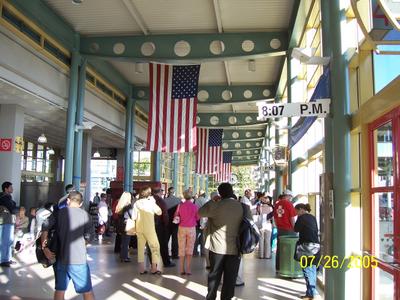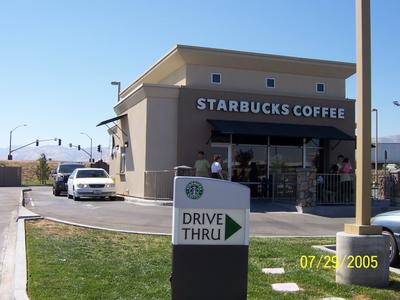 I was able to leave early last Wednesday and took the 6:37 p.m. train.
I was able to leave early last Wednesday and took the 6:37 p.m. train.Every time I get into a discussion with non-financial and non-IS (information system) folks about why work keeps me busy, they ask why we can’t just “push a button” and get the computer to do it all.
I think about the simple act of billing: how the issuance of a single customer invoice triggers entries to six different accounts and how the payment of that bill—if everything is perfectly normal---results in entries to another half-dozen. When things are out of the ordinary---say if a customer short-pays his bill---we need someone who knows what she’s doing to step in and not only communicate with the customer but figure out how to get the system to reflect what just happened.
I think about whether today’s market value of the interest-rate swap we issued four years ago is still above zero; it’s been amortizing according to the notional amount of the loan and I haven’t been monitoring it lately. I think about the inside tax basis and the outside tax basis of the European company we invested in and about how the European controller, a nice guy, doesn’t understand U.S. GAAP (generally accepted accounting principles); I wish he’d prepare financial statements on a monthly basis instead of quarterly and, when he does do them, get them in on time.
Then my thoughts move to the three sets of numbers, only three if we’re lucky, that we have to compare---the plan, the actual, and the forecast---and how only the plan and actual are in the mainframe computer. The forecast changes all the time, is on a spreadsheet, and is not in the same form as our chart of accounts, so we’ve got to shoehorn everything into the same format. Management wants all sort of comparisons and variance analysis, but these are not the same as the SEC’s.
I ruminate on the SEC’s MD&A (management discussion and analysis) requirements for faster and better (we know it when we see it) analyses, how we have to compare this year’s quarter to last year’s quarter and the year-to-date numbers with the comparable period from last year. We have to explain the differences intelligently, back up everything we say, do it quickly, and not make any mistakes.
Section 404 / Sarbanes-Oxley / post-Enron rules mandate that, because we say that we review all this stuff, we have to prove it by initialing and saving drafts in addition to the final version of most of our work. In theory I can go to jail if my binders are messy and papers fall out. Fine, as Rick said in Casablanca, pull the trigger, you’ll be doing me a favor.
No, we can’t push a button just yet. You know, these computers……
On Friday we left the house at 5 a.m. and headed to San Diego to help a family member move. By 11 we were in L.A., where the traffic halted. It took three more hours to get to San Diego, and the locals tell us that we made pretty good time.
 For those in a hurry, the Starbucks on Highway 5, about 100 miles north of L.A., has a drive-through.
For those in a hurry, the Starbucks on Highway 5, about 100 miles north of L.A., has a drive-through.
No comments:
Post a Comment